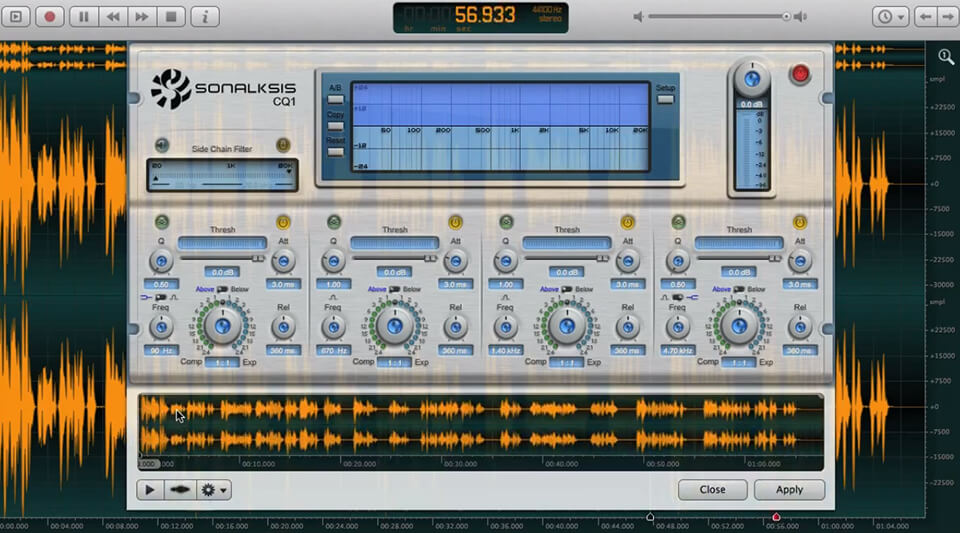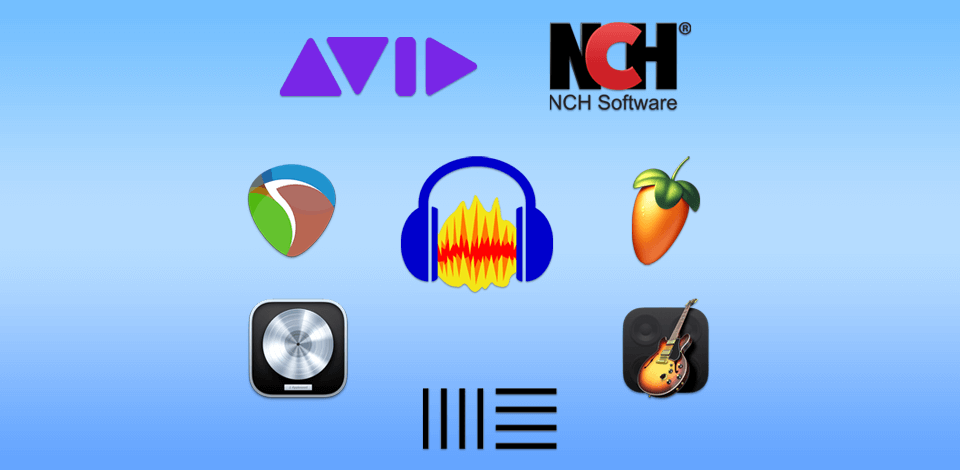
Some people say Adobe Audition doesn't have all the cool music-production tools they want, and there are users who don't like that you can only get the program by subscribing, paying $22.99 a month. Besides, the software consumes much computer resources, so you need a powerful machine to work without lags.
Due to all these inconveniences, many users are searching for free Adobe Audition alternatives.
If you tested Adobe Audition free for a week and don’t feel like shelling out for a subscription, there are numerous Adobe Audition free alternatives out there. Some of these options work seamlessly across various major platforms, devices, and operating systems.
When making a choice, it's crucial to assess different features such as audio editing capabilities, multitrack editing, recording options, MIDI support, effects, and processing instruments, as well as support for different formats. What's noteworthy is that these programs are either free or more budget-friendly compared to Adobe Audition.
Verdict: This Adobe Audition alternative is cross-platform and is available for Windows, MacOS, and Linux. Comparing Adobe Audition vs Audacity, we can say that both programs are suitable for editing, mixing or recording audio tracks, but Audacity can do that for free. One of the best features is that it can smoothly convert and combine any sounds you drag and drop, regardless of the discretization rate and formats.
In terms of editing, users can cut and paste, duplicate or delete audio, place multiple clips on the same track, and make changes up to the sample level. The Convert Tool also allows you to add custom fades. A simple built-in mixer allows you to get the right relative levels and stereo position.
You can also disable solo for some tracks (all these settings are not destructive). This free audio editing software allows importing and exporting WAV, AIFF, AU, FLAC, and Ogg Vorbis formats.
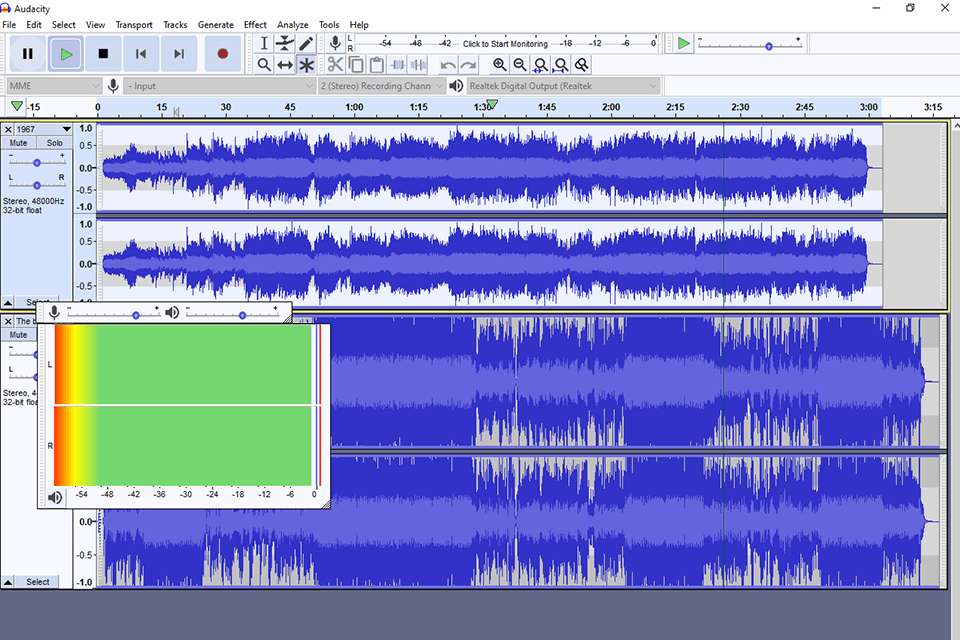
Verdict: Logic is a simple and multi-functional program like Adobe Audition. The main tracks are available in several forms: audio, for recording live tools, MIDI, for recording MIDI data from a keyboard, electronic drum kit or another input device, and a tool that combines them to use with virtual connectable instruments.
Logic Pro can display a timeline with the appropriate colors of the region, elements of track control, or Smart Controls for each track even in the form of plug-ins. You can record audio at up to 24-bit, 192 kHz resolution.
This music production software provides a Live Loops feature, allowing you to integrate samples into a grid of cells and experiment with diverse combinations. You can explore the functionalities of this alternative to Adobe Audition via a free trial, and if it aligns with your needs, switch to a license for $199.99.
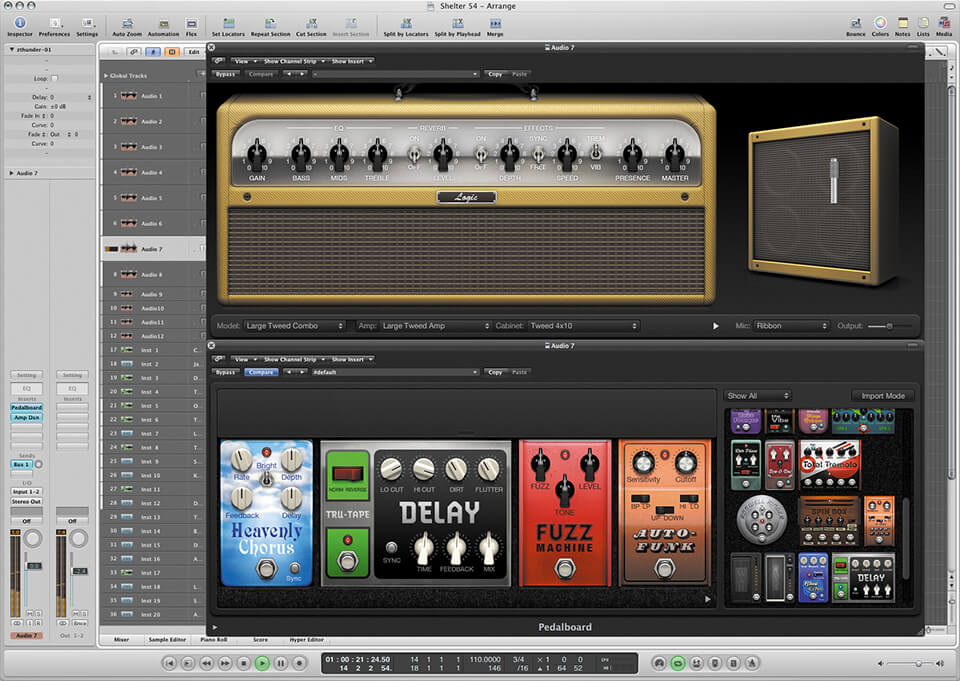
Verdict: Comparing Adobe Audition vs Pro Tools, we found out that both programs contain tools for editing audio at a pro level and creating interesting mixes. The main Avid interface has two windows: Edit and Mix. The Edit window handles all recordings, arrangements, detailed audio and MIDI editing. With the built-in Pro Tools, you can play up to 128 stereo tracks at 48 kHz, 64 tracks at 96 kHz, or 32 tracks at 192 kHz with the ability to record up to 32 tracks simultaneously.
Avid has a wide range of virtual tools. You get a Boom, sequencing drum machine, Mini Grand, a simulated Grand piano with multiple sounds and reverbs, plus variable dynamics with a single knob, a DB-33 organ with wheels with a rotating speaker, Structure Free that plays instruments based on samples, and more.
As part of the basic setup, you get a variety of AIR effects that cover all the major bases when mixing. One of my favorite apps is Avid Channel Strip AAX plug-in that emulates the equalizer and dynamics. You can start with a free trial and then turn to a paid plan for $29.99/mo.
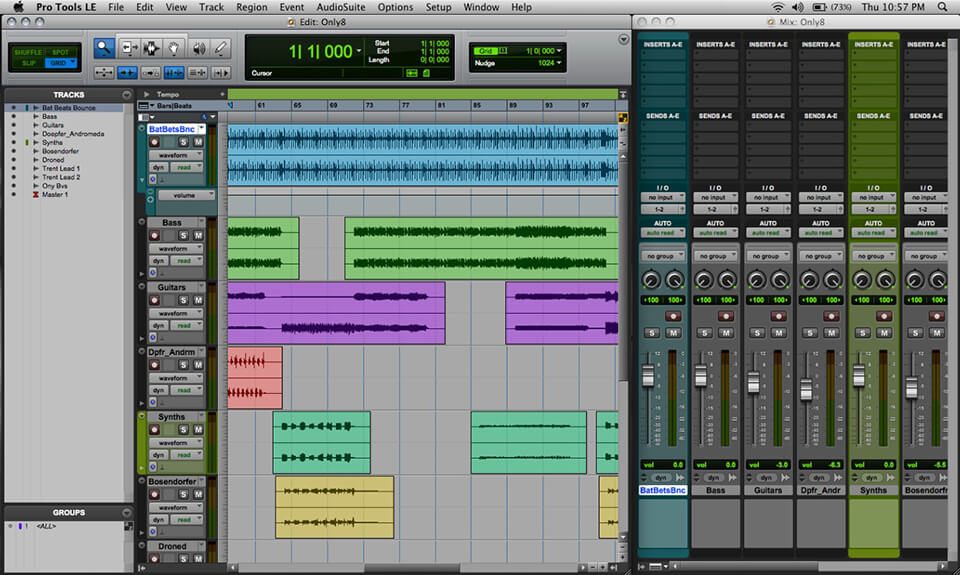
Verdict: Considering another alternative to Adobe Audition it should be said that Live’s interface is two separate working fields: session and arrangement. You can easily switch between them using the Tab button or two round icons in the top right corner of the screen.
A distinctive feature of this DAW software is the distortion of sound, i.e. the control of rhythm, tempo, and pitch (or MIDI).
This can be used when matching the rhythm of dance songs while DJing in a nightclub or for eliminating synchronization problems in a recorded file to bring some life to robotic computer music with human help. Ableton Live supports VST tools and plug-ins. MIDI editing is perfect, and the built-in instruments, sounds, and effects are excellent. Ableton Live has a free trial. Alternatively, you can get a lifetime license for $99.
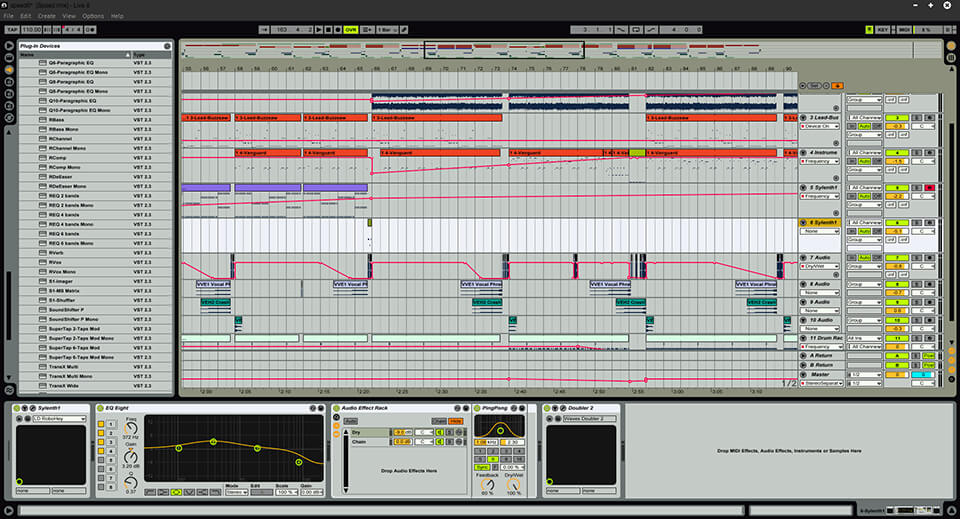
Verdict: GarageBand as an Adobe Audition alternative offers easy-to-use music recording features both for beginners and professionals and comes free with every Mac. The main feature of GarageBand is its VST and VSTi elements, which allow you to compose music inside a DAW and record all songs on real instruments.
Basic audio editing is very simple, but if you want to study GarageBand in detail, you’ll find advanced features as well. Flex Time allows you to slur the groove of a certain audio track, while Groove Matching is perfect for syncing, tempo, and feeling other tracks in relation to the one you've set up.
Also, the app has intelligent controls that highlight the most effective options for adjusting a specific sound, as well as provides regulators, buttons, and sliders that can be adjusted depending on the instrument. This Adobe Audition alternative is absolutely free to use.
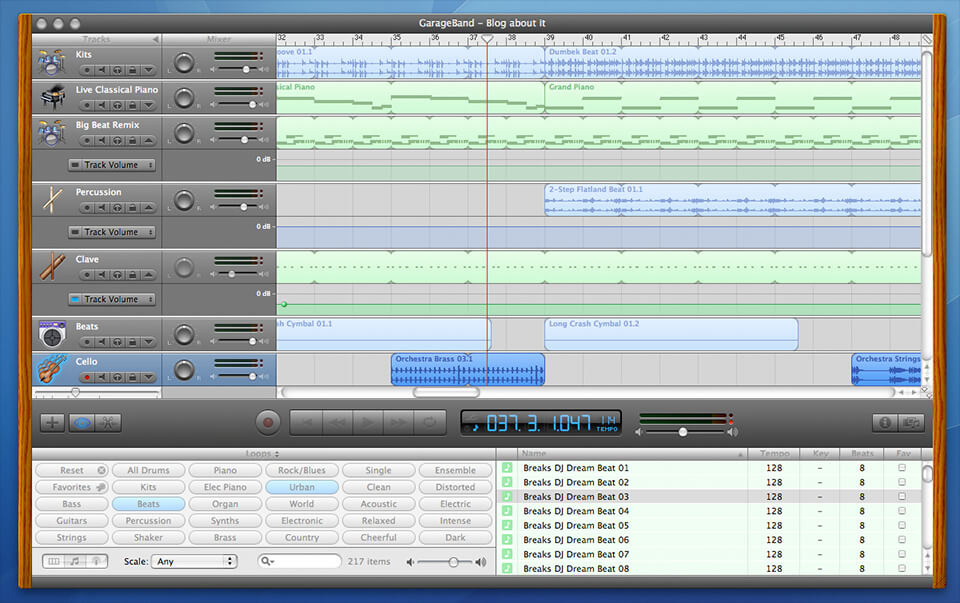
Verdict: If you're looking for an alternative to Adobe Audition, FL Studio presents a diverse set of professional tools covering a spectrum of tasks, including audio editing, beat creation, advanced arrangement, composition, as well as mixing and mastering. This open source music software provides a variety of synthesizers and effects to accommodate a wide range of musical styles.
FL Studio offers a broad range of libraries, all set for use with the software's embedded plugins. Furthermore, there are many samples and sounds tailored to suit different music styles. The software has Slicer, Slicex, and Sampler features to create engaging content. Beyond its functionalities, FL Studio boasts a vibrant user community, always ready and willing to assist newcomers with any inquiries they may have. You can take advantage of a free trial or choose a license for €99.
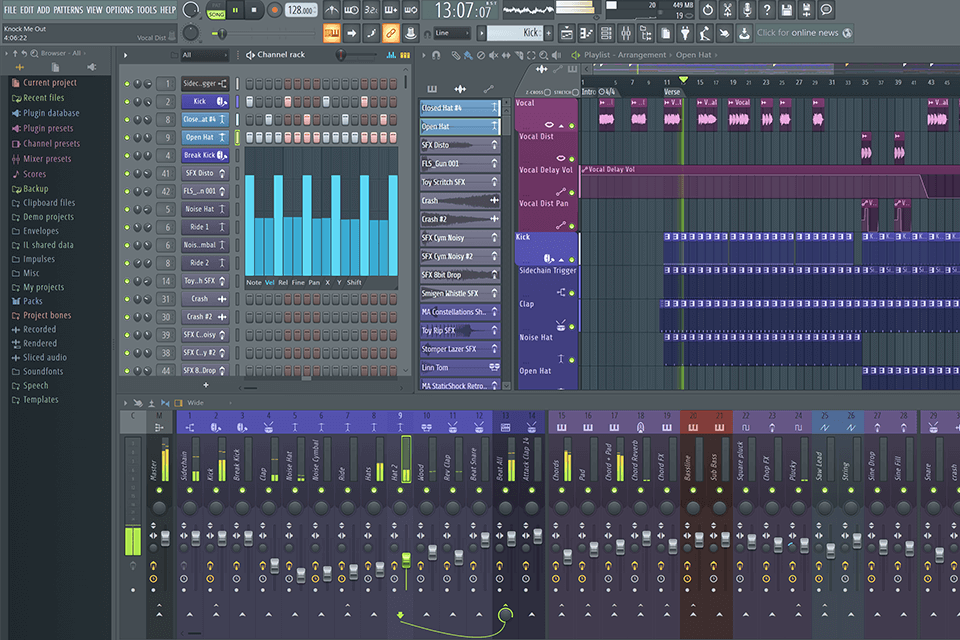
Verdict: Reaper is a digital audio workstation (DAW) and a serious Adobe Audition alternative. Unlike many other programs of this type, you can use this one to create your own menus, toolbars, and macros, as well as to change the look and color scheme of the interface. Whether it is an audio or a virtual instrument, you create a track, press the left red button to record and then press the main recording button to start.
You can adjust the monitoring effects, for example, whether you want to hear the reverb in your headphones while recording vocals. Reaper is suitable for the simultaneous recording of several audio channels of live instruments from a few interface inputs. Reaper supports VST, VST3, AU, DirectX, or JS.
Reaper provides the possibility to automate tracks, set of instruments and effects. While running, you can stop or reset tracks to free up memory and CPU cycles. There is a one-off fee of $225 for a commercial license or you can pay $60 for a discounted license.
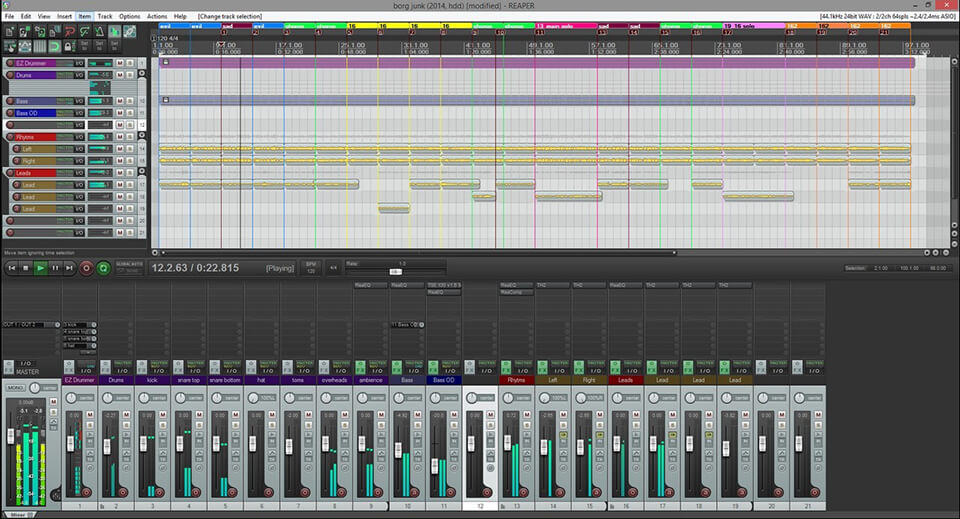
Verdict: If you're looking for an Adobe Audition free alternative, consider WavePad. With this software, you can create and edit voice, music, and various sound recordings. Besides, it is possible to duplicate specific recording segments and use echo, amplification, noise reduction, and other handy tools. The interface is user-friendly and file management is straightforward. However, if anything raises confusion, feel free to check out ample tutorials.
WavePad is compatible with more than 50 audio formats, including WAV, MP3, OGG Vorbis Audio, and GSM to name a few. Besides, you can manage MP4 files, which is great news if you are engaged in video-related work. The program stands out with lossless conversions, Spectral Analysis, and batch editing. There's a free trial available, but if you are seeking more advanced functions, choose from paid plans starting at $3.88 per month.
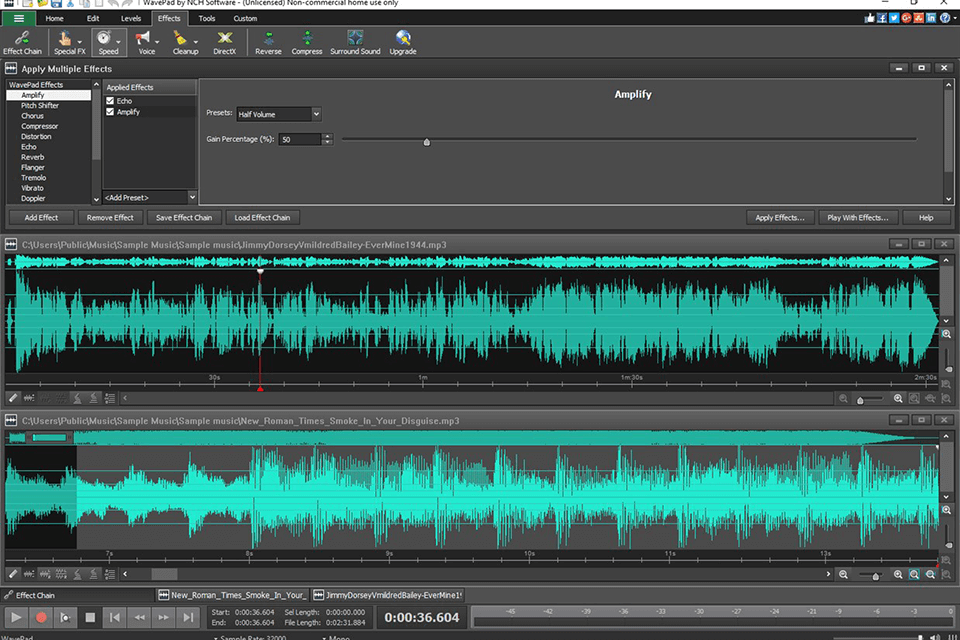
Verdict: Among Adobe Audition alternatives, Sound Forge Studio is known as a great option for beginners. The editor comes with 11 DirectX plug-in audio effects. These effects have 90 sound presets, which make it simple to find the sound you want. You can also preview the effects before applying them. You can import or export any audio file into standard (MP3, FLAC, WAV, RAW, ASF, CDA, AIFF, VOX, OGG, MUS, W64, and AAC) formats.
Sound Forge is unrivaled when it comes to transforming audio from vinyl and tapes into digital formats such as CDs, elevating outdated sound to exceptional studio quality. This audio restoration software not only allows you to record podcasts, songs, webinars, and voice-overs at up to 32-bit/384 kHz but also provides a live waveform display and real-time monitoring for a comprehensive view of a process. You can explore its capabilities through a free trial or choose paid plans from $59.99.
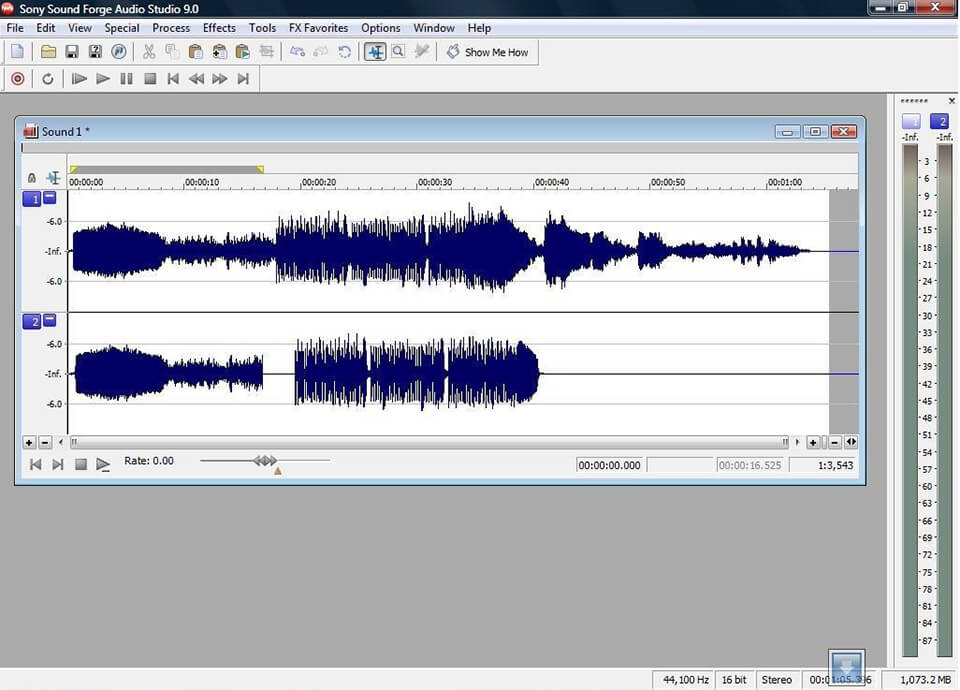
Verdict: Similar to Adobe Audition, Cubase provides musicians with an extensive range of powerful tools, making the process of composing, recording, editing, and mastering music seamless and efficient. Whether you're working on electronic beats or orchestral arrangements, this Adobe Audition alternative will have you covered.
Including multiple VST instruments, plug-ins, and sounds, Cubase allows you to make masterpieces right from the get-go. You can make professional mixes on the MixConsole, harnessing customizable channel strips and advanced routing options for straightforward and optimized control. The licenses cost $99.99+.
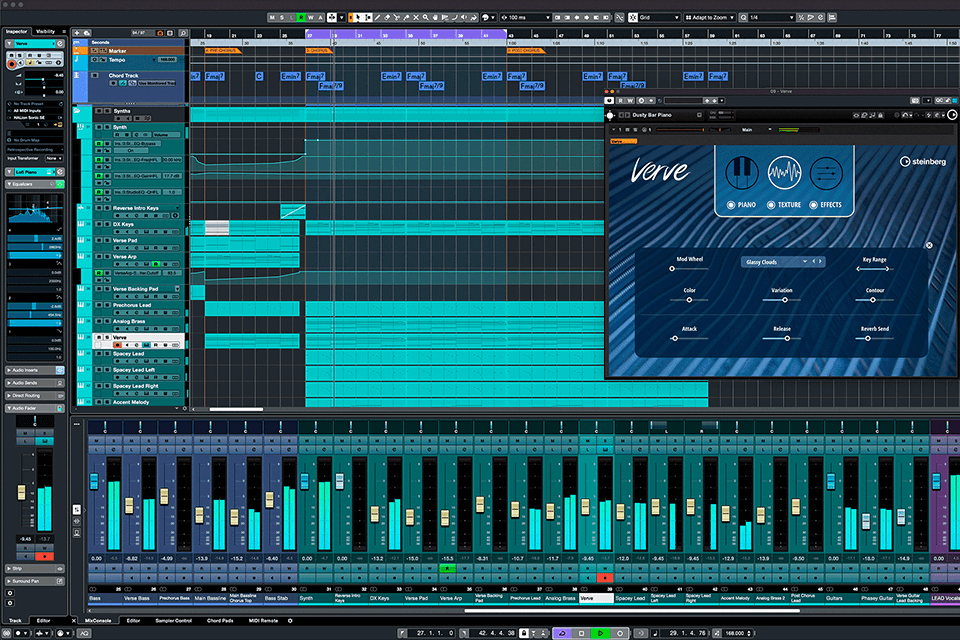
Verdict: Ocenaudio is easy to use, fast and functional cross-platform audio editor. Ocenaudio has a less confusing interface than Audacity but is still a powerful audio editor. The files you open are displayed in the list on the left, and the selected file will be displayed as a signal on the left. Ocenaudio has correctly marked axis, not an arbitrary volume rate.
This open source audio editor is based on the Ocen Framework, a powerful library designed to simplify and standardize the process of creating audio editing and analysis applications across platforms. You can apply different filters and effects with a real-time preview of results, edit multiple options at once and perform many standard sound editing tasks such as copy, paste, and others.
Other features include support of VST plug-ins, addition of digital noises, tones and DTMF sequences, waveform/spectrum and spectrogram representation, sound statistics, iPhone ringtone support, and more. This is a completely free alternative to Adobe Audition.
